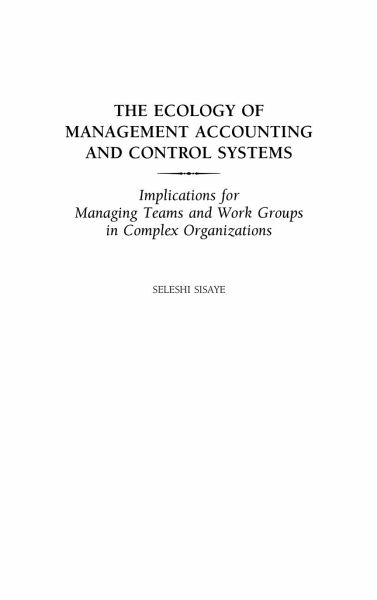
The Ecology of Management Accounting and Control Systems
Implications for Managing Teams and Work Groups in Complex Organizations
Versandkostenfrei!
Versandfertig in 1-2 Wochen
87,99 €
inkl. MwSt.

PAYBACK Punkte
44 °P sammeln!
Recent technological and environmental changes have shifted the operations of management control systems from meeting separate, individually based budgetary goals to management control techniques that emphasize group and team control structures. Accordingly, team-based management controls that incorporate normative, instrumental, and coercive controls are being used in complex organizations to monitor production quality and cost control, manage incentive systems, and design and implement management accounting systems. This book provides the first attempt to bring the theory of organizational e...
Recent technological and environmental changes have shifted the operations of management control systems from meeting separate, individually based budgetary goals to management control techniques that emphasize group and team control structures. Accordingly, team-based management controls that incorporate normative, instrumental, and coercive controls are being used in complex organizations to monitor production quality and cost control, manage incentive systems, and design and implement management accounting systems. This book provides the first attempt to bring the theory of organizational ecology to the forefront in behavioral accounting research. The adaptation framework has been utilized to incorporate environmental and technological issues as well as organizational structural and contextual factors to examine recent developments in management control systems, particularly the use of accounting systems in managing the performance of teams. Researchers and teachers in graduate programs, managers in business, and service organizations who use work groups to manage their organization activities should find this work an immense addition to their collections.












